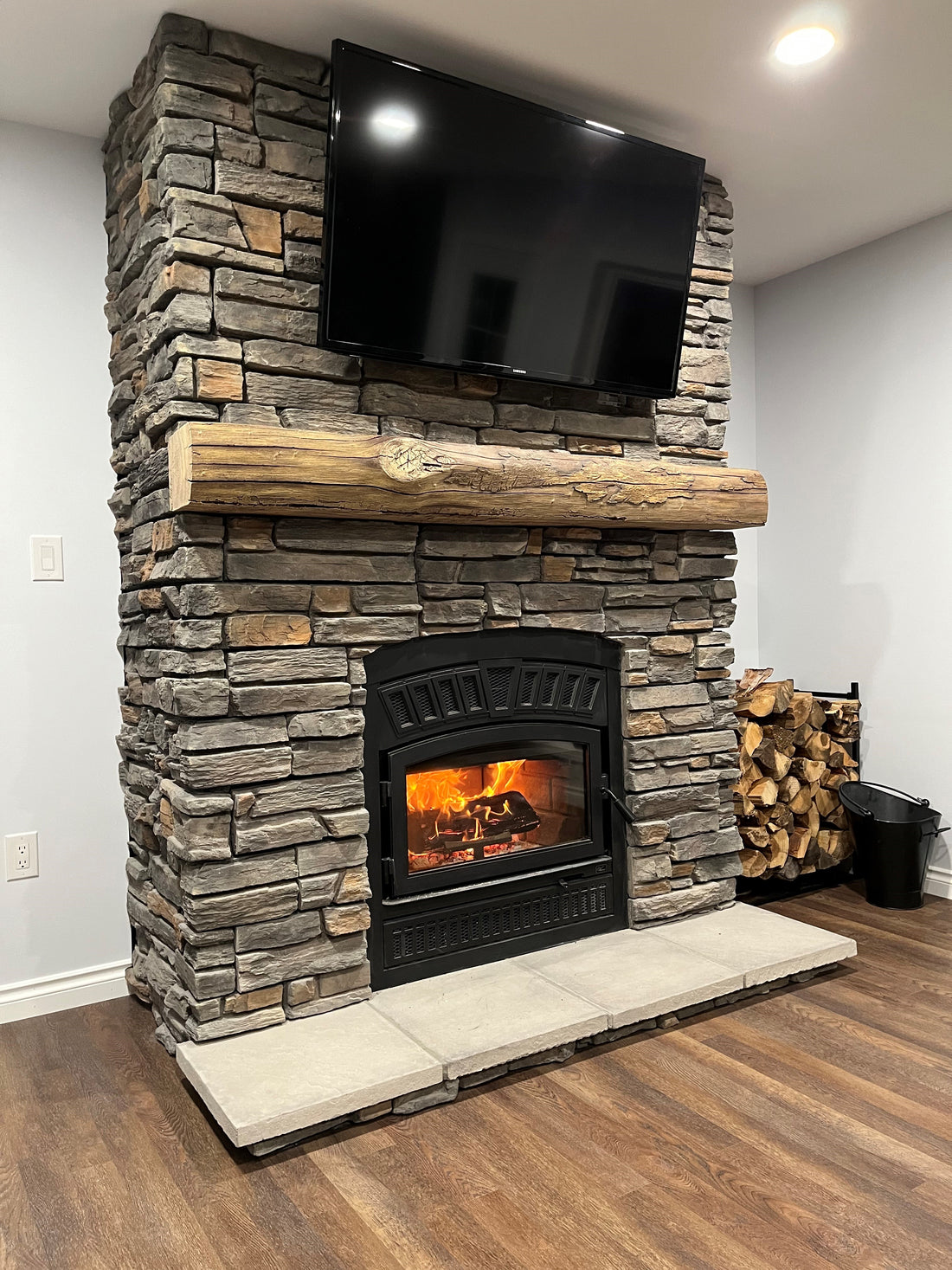
Tips for Maintaining and Caring for your Fireplace to extend its lifespan
Share
Fireplaces are a cozy and comforting addition to any home, but they require regular maintenance and care to ensure they continue to operate safely and efficiently. Here are some tips for maintaining and caring for your fireplace to extend its lifespan:
<strong>Regularly clean the fireplace and chimney.</strong> Creosote, a tar-like substance that builds up on the walls of the chimney, can ignite and cause chimney fires if it's not removed. It's important to have your chimney professionally cleaned at least once a year, or more often if you use your fireplace frequently.
<strong>Install a chimney cap.</strong> A chimney cap will keep birds, squirrels, and other animals from nesting in your chimney, which can cause blockages and other problems. It will also prevent rain and snow from enterinag the chimney, which can lead to water damage.
<strong>Use the right fuel.</strong> The type of fuel you use in your fireplace can affect its performance and safety. Only burn seasoned hardwood in your fireplace, and avoid using wet or unseasoned wood, which can produce more smoke and creosote.
<strong>Keep the fireplace and surrounding area clear.</strong> Never store flammable materials, such as newspapers or logs, near the fireplace. And make sure there's a sturdy screen in front of the fireplace to prevent sparks from jumping out.
<strong>Have the fireplace inspected annually.</strong> It's a good idea to have a professional inspect your fireplace and chimney annually to ensure everything is in good working order. They can identify any potential problems and make recommendations for repairs or maintenance.
<strong>By following these tips, you can help ensure your fireplace continues to provide warmth and comfort for years to come. Regular maintenance and care are essential for maintaining the safety and efficiency of your fireplace, and can help extend its lifespan.</strong>
In addition to regular cleaning and inspection, it's important to check the condition of your fireplace and chimney regularly. Look for cracks, holes, or other damage that could affect the performance of your fireplace and make it unsafe to use. If you notice any damage, have it repaired as soon as possible to prevent more serious problems from developing. Also, make sure the damper is in good working order to control the flow of air in and out of the fireplace. A damaged or stuck damper can waste energy and cause safety hazards.
<strong>Regularly clean the fireplace and chimney.</strong> Creosote, a tar-like substance that builds up on the walls of the chimney, can ignite and cause chimney fires if it's not removed. It's important to have your chimney professionally cleaned at least once a year, or more often if you use your fireplace frequently.
<strong>Install a chimney cap.</strong> A chimney cap will keep birds, squirrels, and other animals from nesting in your chimney, which can cause blockages and other problems. It will also prevent rain and snow from enterinag the chimney, which can lead to water damage.
<strong>Use the right fuel.</strong> The type of fuel you use in your fireplace can affect its performance and safety. Only burn seasoned hardwood in your fireplace, and avoid using wet or unseasoned wood, which can produce more smoke and creosote.
<strong>Keep the fireplace and surrounding area clear.</strong> Never store flammable materials, such as newspapers or logs, near the fireplace. And make sure there's a sturdy screen in front of the fireplace to prevent sparks from jumping out.
<strong>Have the fireplace inspected annually.</strong> It's a good idea to have a professional inspect your fireplace and chimney annually to ensure everything is in good working order. They can identify any potential problems and make recommendations for repairs or maintenance.
<strong>By following these tips, you can help ensure your fireplace continues to provide warmth and comfort for years to come. Regular maintenance and care are essential for maintaining the safety and efficiency of your fireplace, and can help extend its lifespan.</strong>
In addition to regular cleaning and inspection, it's important to check the condition of your fireplace and chimney regularly. Look for cracks, holes, or other damage that could affect the performance of your fireplace and make it unsafe to use. If you notice any damage, have it repaired as soon as possible to prevent more serious problems from developing. Also, make sure the damper is in good working order to control the flow of air in and out of the fireplace. A damaged or stuck damper can waste energy and cause safety hazards.
